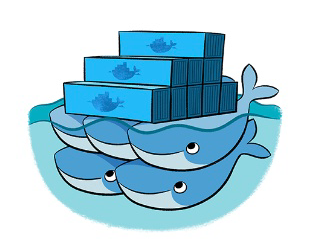Docker Acquires Cloud Pioneer Unikernel Systems

Industry consolidation around an emerging application container ecosystem gained momentum this week with Docker Inc.'s acquisition of U.K.-based Unikernel Systems, a developer of lightweight operating systems used to deliver distributed applications.
Terms of the deal were not disclosed, but San Francisco-based Docker said Thursday (Jan. 21) Unikernel Systems developers would continue contributing to several open source unikernel projects. Based in Cambridge, U.K., Unikernel Systems emerged from an open source virtualization platform effort dubbed the Xen Project that helped develop much of the infrastructure handling public cloud workloads.
Unikernels compile source code into a custom operating system that includes only the code functionality required by the application logic. "That makes them small, fast and improves security," noted Anil Madhavapeddy, co-founder and CTO of Unikernel Systems.
“Similar to what Docker has done for Linux containers, by combining forces, we will be able to unlock the entire Docker ecosystem for use with unikernels, including orchestration and networking," Madhavapeddy added in a statement.
There is a growing list of open source implementations for unikernels, including MirageOS, which Madhavapeddy described as using a "clean-slate approach by using a type-safe [protocol] language to create the necessary [OS] libraries."
The deal also represents Docker's effort to extend its application container platform to a "much wider audience" by separating applications from infrastructure constraints. "Through the Docker platform, unikernels will be on a 'continuum' with Linux and Windows containers, enabling users to create truly hybrid applications across all formats with a uniform workflow," Solomon Hykes, Docker's founder and CTO, noted in a statement announcing the deal.
"Having an easy way to build, ship and run unikernel apps will dramatically accelerate our development," Madhavapeddy stressed. "The ability to use the same Docker tools, which have been wildly popular with developers, will rapidly accelerated unikernel adoption." Those tools include: Docker Hub, the central repository for Docker images; Compose, used to define application components; Swarm, which "pools" containers and exposes them as a single virtual Docker Enginer; and, addressing security concerns, Docker Trusted Registry.
The acquisition also addresses unresolved concerns about the security of delivering enterprise application via Docker and other container approaches. "Containers and unikernels sit on continuum of isolation and specialization," Madhavapeddy noted, a reference to the isolation of individual containers so that one can't "see" the content of another. The resulting isolation improves overall security of distributed applications, container proponents note.
Docker said it previously demonstrated the ability to integrate unikernels with a Docker deployment, including using the container platform's orchestration and networking tools to create "specialized distributed applications."
Observers noted that the integration of unikernels into the Docker platform promised to move the distributed application technology up the value chain from micro-services to emerging Internet of Things applications.
Related
George Leopold has written about science and technology for more than 30 years, focusing on electronics and aerospace technology. He previously served as executive editor of Electronic Engineering Times. Leopold is the author of "Calculated Risk: The Supersonic Life and Times of Gus Grissom" (Purdue University Press, 2016).










